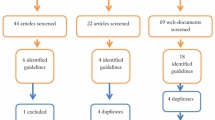Abstract
Epidemiology is a core science of public health, focusing on research related to the distribution and determinants of both positive and adverse health states and events and on application of knowledge gained to improve public health. The American College of Epidemiology (ACE) is a professional organization devoted to the professional practice of epidemiology. As part of that commitment, and in response to concerns for more explicit attention to core values and duties of epidemiologists in light of emerging issues and increased scrutiny of epidemiology, the College developed, adopted, and published a set of Ethics Guidelines. The structure of the ACE ethics guidelines is in four parts: (1) a brief statement of core values and duties of epidemiologists, coupled with the virtues important to professional practice; (2) concise statements of key duties and obligations; (3) exposition of the duties and obligations with more applications; and (4) a brief summary and conclusion. The Guidelines have been published on the ACE website and in the official College journal Annals of Epidemiology. The guidelines contain (and maintain) core elements that define the discipline of epidemiology and its fundamental duties, but they are also intended to be dynamic and evolving, responsive to a changing professional and social environment.
Similar content being viewed by others
References
Last, J.M. (1995) A Dictionary of Epidemiology, 3 ed., Oxford University Press, New York.
Institute of Medicine, Committee for the Study of the Future of Public Health (1998) The Future of Public Health, National Academy Press, Washington, DC.
Susser, M. (1985) Epidemiology in the United States after World War II: The revolution of technique, Epidemiologic Reviews 7: 147–177.
Wolf, S.M. (1994) Shifting Paradigms in Bioethics and Health Law: The Rise of a New Pragmatism, American Journal of Law & Medicine 20: 395–415.
Callahan D. (1995) Bioethics, in: Reich, W.T., ed. Encyclopedia of Bioethics, Rev. Ed. MacMillan, New York, Vol 1, pp. 247–256.
DuMez, E. (2000) The role and activities of scientific societies in promoting research integrity, Professional Ethics Report 8: 1,7–8.
Panel on Scientific Responsibility and the Conduct of Research, Committee on Science, Engineering, and Public Policy, National Academy of Sciences, National Academy of Engineering, Institute of Medicine. (1992) Responsible science: ensuring the integrity of the research process, National Academy Press, Washington, D.C.
President’s Advisory Committee on Human Radiation Experiments. (1996) The Human Radiation Experiments: Final Report of the President’s Advisory Committee, Oxford University Press, New York.
Beecher, H.K. (1966) Ethics and Clinical Research, The New England Journal of Medicine 274: 1354–1360.
Brandt, A.M. (1978) Racism and Research: The Case of the Tuskegee Syphilis Study, Hastings Center Report 8: 21–29.
Katz, J. (1987) The Regulation of Human Experimentation in the United States — A Personal Odyssey, IRB 9: 1–6.
Annas, G.J. (1992) Changing the consent rules for Desert Storm, New England Journal of Medicine 326: 770_3.
Grodin, M.A. and Annas, G.J. (1996) Legacies of Nuremberg. Medical ethics and human rights. JAMA 276: 1682_3.
Carpenter, W., Jr. (1997) The Risk of Medication-free Research, Schizophrenia Bulletin 23: 11–18.
Fins, J.J. and Miller, F.G. (1997) The call of the sirens: Navigating the ethics of medication-free research in schizophrenia, Archives of General Psychiatry 54: 415–6.
Lehrman, N.S. and Sharav, V.H. (1997) Ethical Problems in Psychiatric Research, Journal of Mental Health Administration 24: 227–250.
Shore, D. (1996) Ethical Principles and Informed Consent: An NIMH Perspective, Psychopharmacology Bulletin 32: 7–10.
Angell, M. (1997) The Ethics of Clinical Trials in the Third World, New England Journal of Medicine 337: 847–849.
Lurie, P. and Wolfe, S.M. (1997) Unethical Trials of Intervention to Reduce Perinatal Transmission of the Human Immunodeficiency Virus in Developing Countries, New England Journal of Medicine 337: 853–856.
Varmus, H. and Satcher, D. (1997) Ethical Complexities of Conducting Research in Developing Countries, New England Journal of Medicine 337: 1003–1005.
Fisher, B., Costantino, J.P., Redmond, C.K., Fisher, E.R., Wickerbaum, D.L., and Cronin, W.M. (1994) Endometrial Cancer in Tamoxifen-Treated Breast Cancer Patients: Findings From the National Surgical Adjuvant Breast and Bowel Project (NSABP) B-14, Journal of the National Cancer Institute 86: 527–537.
Youngner, J.S. (1998) The Scientific Misconduct Process: A Scientist’s View From the Inside, JAMA 279: 62–64.
Weed, D.L. and Coughlin, S.S. (1999) New ethics guidelines for epidemiology: Background and rationale, Annals of Epidemiology 9: 277–280.
American College of Epidemiology 2000 Ethics Guidelines, Annals of Epidemiology 10: 487–497.
McKeown, R.E. (2000) American College of Epidemiology Ethics Guidelines: Filling a Critical 3 Gap in the Profession, Annals of Epidemiology 10: 485–486.
Weed, D.L. and McKeown, R.E. (1998) Epidemiology and Virtue Ethics, International Journal of Epidemiology 27: 343–348.
Beauchamp, T.L., Cook, R.R., Fayerweather, W.E., Raabe, G.K., Thar, W.E., Cowles, S.R. and Spivey, G.H. (1991) Ethical Guidelines for Epidemiologists, Journal of Clinical Epidemiology 44: 151S-169S.
Author information
Authors and Affiliations
Corresponding author
Additional information
Affiliations of co-authors: Douglas L. Weed, MD, MPH, PhD is Director of the Cancer Prevention Fellowship Program, Office of Preventive Oncology, National Cancer Institute; Jeffrey P. Kahn, PhD, MPH, is Professor of Medicine and Director of the Center for Bioethics, UMN Twin Cities, Minneapolis; Michael A. Stoto, PhD, is Associate Director for Public Health, RAND Center for Domestic and International Health Security, Arlington, VA.
Rights and permissions
About this article
Cite this article
McKeown, R.E., Weed, D.L., Kahn, J.P. et al. American college of epidemiology ethics guidelines: Foundations and dissemination. SCI ENG ETHICS 9, 207–214 (2003). https://doi.org/10.1007/s11948-003-0008-y
Issue Date:
DOI: https://doi.org/10.1007/s11948-003-0008-y




